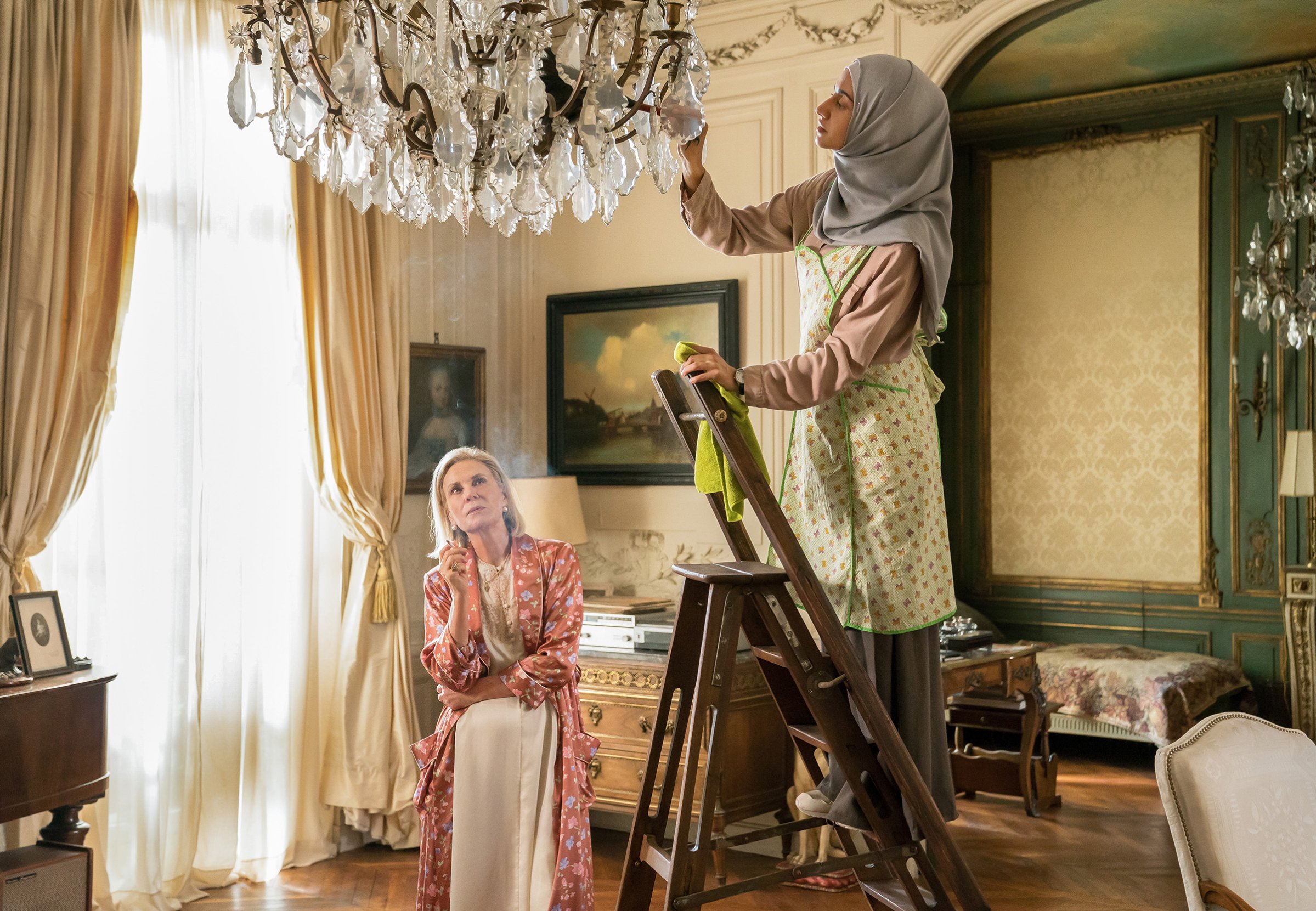
In the annals of history, the name “Romanoff” is written in blood. As one character points out in Mad Men creator Matthew Weiner’s odd new Amazon series The Romanoffs, if you know one thing about Tsar Nicholas and his family, it’s that Bolsheviks shot them to death in a basement during the aftermath of the Russian Revolution. And if you haven’t heard the story, the show’s pitch black opening credits sequence will catch you up: Clad in ghostly white, the aristocratic clan is massacred, their royal blood staining the dusty wooden floorboards. Yet one girl, presumably the storied Anastasia, escapes—and emerges from the subway a century later, smartphone in hand. The soundtrack: Tom Petty’s “Refugee.”
A historical drama about the last days of a dynasty might have been a worthy project for Weiner, one of several powerful men who’ve recently faced accusations of sexual misconduct and emerged with career intact. But The Romanoffs isn’t a period piece; it’s a narrative experiment in the form of a madcap anthology series that follows characters who claim to be descendants of the tsar. In the premiere, elderly Anushka (Marthe Keller) languishes in a palatial Paris apartment filled with Russian artifacts, while her nephew (Aaron Eckhart) and his nasty girlfriend (Louise Bourgoin) wait for her to die and leave it to him. The second of two episodes that will begin streaming on Oct. 12 (with subsequent installments appearing every Friday) involves a cruise for Romanoff descendants.
Each 90-minute installment feels like a standalone movie, allowing Weiner—who directed and co-wrote all eight of them—to test out multiple genres: domestic drama, romantic comedy and, in the best of the three episodes provided for review, a compact psychological thriller starring Christina Hendricks and Isabelle Huppert. Other big names (Diane Lane, Kathryn Hahn, Amanda Peet, Noah Wyle) join Mad Men alums including John Slattery and Cara Buono in the enormous cast. Weiner still has an eye for talented newcomers, too: The young French actress Inès Melab steals the first episode as Anushka’s self-possessed Muslim caregiver.
Some typical Weiner themes emerge: family, entitlement, repression, self-creation and self-delusion, the alienation and paralysis that come with obsessing over the past. At times, the show seems to be riffing on epic Russian novels by Tolstoy or Dostoyevsky, throwing characters driven by unruly emotions into plots steeped in infidelity, murder and conspiracy. It can be disorienting to watch contemporary problems crescendo to such operatic climaxes—but, divisive though they’re bound to be, the inconsistency of tone is surely deliberate. Weiner has always had a weird, dark sense of humor: Remember dead Bert Cooper’s “The Best Things in Life Are Free” dance number from Mad Men? The Romanoffs’ anything-goes storylines give that perversity free reign, with results that range from sublime to irritating.
There is a nagging sense of incompleteness about even the best of these stories. The characters are compelling but not quite multidimensional. As riveting as they are in the moment, the episodes’ histrionic conclusions can leave you wondering, “So what?” Watching The Romanoffs, I often got the impression that Weiner—who published a novel, Heather, the Totality, last year but hasn’t helmed a serialized drama since Mad Men ended in 2015—had purposely avoided making the kind of show that could be compared to his masterwork.
Yet none of this makes the show’s stellar performances, sharp dialogue and lush sets any less pleasurable to take in. Will The Romanoffs ever cohere on a thematic level? We won’t know until it’s over, but Weiner certainly has a knack for memorable finales.
More Must-Reads from TIME
- Why Biden Dropped Out
- Ukraine’s Plan to Survive Trump
- The Rise of a New Kind of Parenting Guru
- The Chaos and Commotion of the RNC in Photos
- Why We All Have a Stake in Twisters’ Success
- 8 Eating Habits That Actually Improve Your Sleep
- Welcome to the Noah Lyles Olympics
- Get Our Paris Olympics Newsletter in Your Inbox
Contact us at letters@time.com